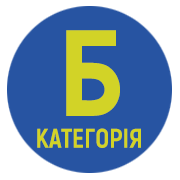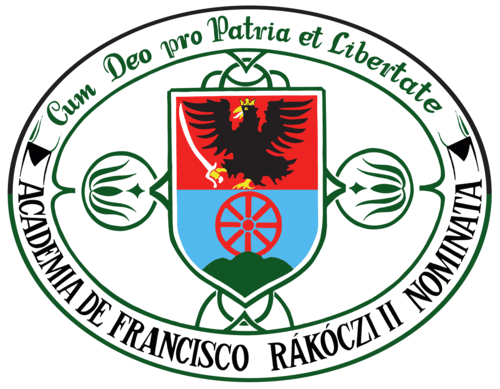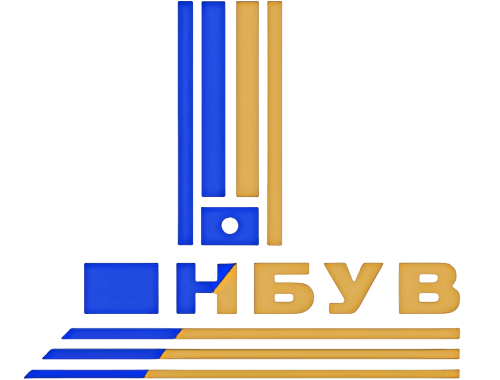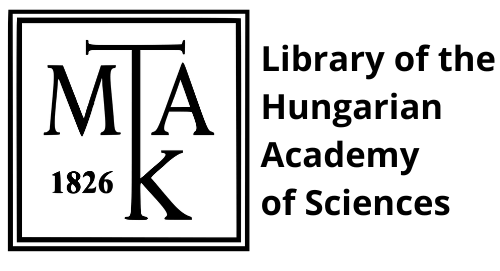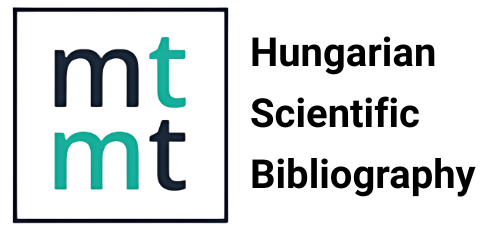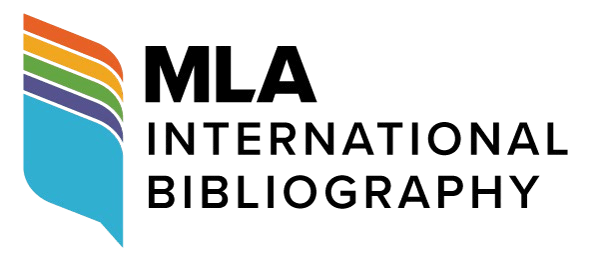What do beliefs about bilingualism correlate with?
Prescriptivism and fear of assimilation among adult foreign language learners in Hungary
DOI:
https://doi.org/10.58423/2786-6726/2022-1-9-26Keywords:
bilingualism, language learning motivation, beliefs, language ideology, double monolingualism, foreign language learningAbstract
It has become such a widespread notion in Europe that bilingualism is an exceptional phenomenon (Bartha, 2009, p. 145) that it also determines the way we think about languages in Hungary. Moreover, in Hungary speakers typically judge bilingualism along the lines of standard linguistic ideology, that is, “the linguistic ideological concepts and beliefs about bilingualism are still being shaped and reinterpreted in various contexts, in tandem with the standard, normative linguistic concept of bilingualism, which excludes diversity” (Bartha, 2009, p. 149, translated by me). In my study I will elaborate on this issue based on my research among 18-24-year-old language learners, and show how linguistic ideologies about bilingualism are related to beliefs about the Hungarian language. I will also discuss the role of language learning motivation.
In my quantitative research (n=507) I collected beliefs on Hungarian and language learning using a questionnaire, and after principal component analysis I looked for correlations by calculating the Pearson correlation coefficients. The results show that students’ beliefs about bilingualism are related to the extent to which they were taught their first language using a prescriptive approach, and to the extent to which they themselves subscribe to prescriptivism. In addition, students’ fear of assimilation and linguistic prejudice also correlated with their beliefs about bilingualism. Thus, misconceptions about bilingualism are still fuelled by the prescriptive, purist and prejudiced linguistic attitudes associated with the standard language culture that are present in Hungary. My results show that even highly motivated language learners believe that “the only natural way to become bilingual is to learn two languages in one’s family from an early age” (one of the items of the questionnaire, based on Bartha, 2009, p. 147).
In my study I highlight the role of teachers in maintaining language ideologies related to bilingualism, and argue that language learning motivation research should also pay more attention to language learning beliefs, because motivation is interlinked with and inseparable from them.
References
Asztalos Réka – Szénich Alexandra – Csizér Kata 2020. Nyelvoktatás és autonóm nyelvtanulás – Helyzetkép és megújulási törekvések Magyarországon [Foreign Language Teaching and Autonomous Language Learning: An Overview and Innovative Practices in Hungary]. In: Ludwig, Christian – Tassinari, Maria Giovanna – Mynard, Jo szerk. Navigating foreign language learner autonomy. Hong Kong: Candlin & Mynard ePublishing. 255−279. o. (In Hungarian).
Bartha Csilla 1999. A kétnyelvűség alapkérdései. Beszélők és közösségek [Basic Issues of Bilingualism: Speakers and Communities]. Budapest: Nemzeti Tankönyvkiadó. (In Hungarian).
Bartha Csilla 2009. Út a többnyelvűség felé? – Nyelvideológiák, attitűdök és nyelvcsere: a kétnyelvűséggel kapcsolatos elképzelések szerepe a kisebbségi nyelvek megőrzésében [Are these ways to multilingualism? – Language ideologies, attitudes and language shift: the role of opinios about bilingualism in the maintenance of minority languages]. In: Borbély Anna − Vanconé Kremmer Ildikó szerk. Nyelvideológiák, attitűdök és sztereotípiák. 15. Élőnyelvi konferencia Párkány (Szlovákia), 2008. szeptember 4–6. [Language ideologies, attitudes and stereotypes. 15th Hungarian Sociolinguistics Conference, Párkány−Štúrovo (Slovakia), 4–6 September, 2008]. MTA Nyelvtudományi Intézet – Gramma Nyelvi Iroda – Konstantin Filozófus Egyetem Közép-európai Tanulmányok Kar Budapest – Dunaszerdahely – Nyitra: Tinta Könyvkiadó. 141–155. o. (In Hungarian).
Csepeli György – Örkény Antal 2018. A nacionalizmus alakváltozása Magyarországon és Oroszországban 1995 és 2013 között. Egy komparatív összehasonlító kutatás eredményei [The metamorphosis of nationalism in Hungary and Russia between 1995 and 2013: results of a comparative comparison research]. Metszetek [Cross-Sections]. 7/3: 43–63. o. (In Hungarian).
Csizér Kata – Kormos Judit 2007. Az angol nyelvtanulási motiváció alakulása Budapesten tanuló egyetemisták és főiskolások körében [Language learning motivation among students in tertiary education in Budapest]. Magyar Pedagógia [Hungarian Pedagogy] 107/1: 29–43. o. (In Hungarian).
Csizér Kata – Kormos Judit 2009. Learning experiences, selves and motivated learning behaviour: A comparative analysis of structural models for Hungarian secondary and university learners of English. In: Dörnyei, Zoltán – Ushioda, Ema szerk. Motivation, Language Identity and the L2 Self. Bristol: Multilingual Matters. 98–119. o.
Einhorn Ágnes 2015a. A pedagógiai modernizáció és az idegennyelv-tanítás [Pedagogical modernization and foreign language teaching]. Miskolc: Miskolci Egyetemi Kiadó. (In Hungarian).
Einhorn Ágnes 2015b. Pedagógiai kultúraváltás az idegennyelv-tanításban? Vitaindító [Transforming our pedagogical culture in foreign language teaching: proposals for debate]. Modern Nyelvoktatás [Modern Language Teaching] 21/4: 48–58. o. (In Hungarian).
Horwitz, Elaine Kolker 1988. The beliefs about language learning of beginning university foreign language students. Modern Language Journal 72/3: 283–294. o.
Jánk István 2016. Nem-e magyart tanítunk? – nyelvi alapú diszkrimináció az iskolában [Do not we teach Hungarian? Linguistic discrimination in the school]. In: Kozmács István – Vančo Ildikó szerk. Sztenderd – nem sztenderd. Variációk egy nyelv változataira. Válogatás a 18. Élőnyelvi Konferencia – Nyitra, 2014. szeptember 18–20. – előadásaiból I. [Standard and Non-Standard: Varieties of a Language Variety. A selection from the 18th Hungarian Sociolinguistics Conference I., Nitra, 18−20 September, 2016]. Lakitelek: Antológia Kiadó. 223–230. o. (In Hungarian).
Kontra Miklós 2009. Mivel korrelálnak a nyelvi előítéletek Budapesten? [Linguistic prejudice in Budapest and its correlates]. In: Borbély Anna – Vanconé Kremmer Ildikó szerk. Nyelvideológiák, attitűdök és sztereotípiák. 15. Élőnyelvi konferencia Párkány (Szlovákia), 2008. szeptember 4-6. [Language ideologies, attitudes and stereotypes. 15th Hungarian Sociolinguistics Conference, Párkány−Štúrovo (Slovakia), 4–6 September, 2008]. MTA Nyelvtudományi Intézet – Gramma Nyelvi Iroda – Konstantin Filozófus Egyetem Közép-európai Tanulmányok Kar. Budapest – Dunaszerdahely – Nyitra: Tinta Könyvkiadó. 37–51. o. (In Hungarian).
Laihonen, Petteri 2009. A magyar nyelvi standardhoz kapcsolódó nyelvi ideológiák a romániai Banságban [Language ideologies in the Romanian Banat concerning the Hungarian Standard variety]. In: Lanstyák István − Menyhárt József − Szabómihály Gizella szerk. Tanulmányok a kétnyelvűségről IV. [Studies on bilingualism IV]. Dunaszerdahely: Gramma. 47−77. o. (In Hungarian).
Lanstyák István 2007. Általános nyelvi mítoszok [General language myths]. In: Domonkosi Ágnes – Lanstyák István – Posgay Ildikó szerk. Műhelytanulmányok a nyelvművelésről [Workshop studies on language cultivation]. Dunaszerdahely – Budapest: Gramma Nyelvi Iroda – Tinta Könyvkiadó. 174−212. o. (In Hungarian).
Lois Márta 2016. Középiskolai nyelvtanárok nézetei a nyelvek egyenlő(tlen)ségéről és a nyelvérzék szerepéről [Beliefs of secondary school language teachers about the un/equality of languages and about the role of language learning aptitude]. In: Reményi Andrea Ágnes − Sárdi Csilla – Tóth Zsuzsa szerk. Távlatok a mai magyar alkalmazott nyelvészetben [Perspectives in Today's Hungarian Applied Linguistics]. Budapest: Tinta Könyvkiadó. 131−144. o. (In Hungarian).
Nikolov Marianne 2003. Angolul és németül tanuló diákok nyelvtanulási attitűdje és motivációja [Language learning attitude and motivation of students studying English and German]. Iskolakultúra 8: 61–73. o. (In Hungarian).
Öveges Enikő – Csizér Kata szerk. 2018. Vizsgálat a köznevelésben folyó idegennyelv-oktatás kereteiről és hatékonyságáról. Kutatási jelentés [Research into the framework and effectiveness of foreign language teaching in Hungarian public education. Research report]. https://www.oktatas.hu/pub_bin/dload/sajtoszoba/ nyelvoktatas_kutatasi_jelentes_2018.pdf (In Hungarian).
Rozgonyi Zoltán 2019. 2020, felsőoktatás és nyelvvizsgák [2020, Higher Education and Language Exams]. http://nyelvtudasert.hu/ data/uploads/000_2020-nyelvvizsgak_jovoje-rz.pdf (In Hungarian).
Szabó Tamás Péter 2007. Fiatalok a nyelv fejlődéséről és fejlesztéséről [Hungarian young speakers about the development of their first language and how to develop it]. Magyar Nyelv [Hungarian Language] 103/4: 461–470. o. (In Hungarian).
Szabó Tamás Péter 2011. Ideológiák a nyelvi hibajavítás hátterében? Metanyelvi elemzések [Do Ideologies Conduct Repair? Analysis of Metalanguage]. In: Hires-László Kornélia – Karmacsi Zoltán – Márku Anita szerk. Nyelvi mítoszok, ideológiák, nyelvpolitika és nyelvi emberi jogok Közép-Európában elméletben és gyakorlatban. A 16. Élőnyelvi Konferencia előadásai [Language myths, ideologies, language policy and linguistic human rights in Central Europe in theory and practice. Presentations of the 16th Hungarian Sociolinguistics Conference]. Budapest – Beregszász: Tinta Könyvkiadó – II. Rákóczi Ferenc Kárpátaljai Magyar Főiskola Hodinka Antal Intézete. 174–183. o. (In Hungarian).
Székelyi Mária – Barna Ildikó 2008. Túlélőkészlet az SPSS-hez. Többváltozós elemzési technikákról társadalomkutatók számára [Survival Kit to the SPSS. On the Multivariate Analytical Techniques for Social Science Researchers]. Budapest: Typotex. (In Hungarian).
Taguchi, Tatsuya − Magid, Michael – Papi, Mostafa 2009. The motivation questionnaire used by Taguchi et al. (2009). In: Dörnyei, Zoltán – Ushioda, Ema 2011. szerk. Teaching and researching motivation (2nd Edition) Harlow: Longman. 275–283. o.
Tolcsvai Nagy Gábor 2007. Nyelvleírás és nyelvi értékelés. Problémavázlat [Linguistic description and evaluation]. In: Domonkosi Ágnes – Lanstyák István – Posgay Ildikó szerk. Műhelytanulmányok a nyelvművelésről [Workshop studies on language cultivation]. Dunaszerdahely – Budapest: Gramma Nyelvi Iroda – Tinta Könyvkiadó. 27−32. o. (In Hungarian).
URL1: Eurostat 2018. Number of foreign languages known (self-reported) by age. https://appsso.eurostat.ec.europa.eu/nui/show.do?dataset=edat_aes_l22&lang=en (Accessed: 14 March 2022)
URL2: Nyelvvizsga-statisztikák (vizsgázók száma alapján). Évek szerinti bontás nyelvek szerint 2012−2021 [Language exam statistics (based on the number of examiners). Ratings by year and by language, 2012−2021]. Oktatási Hivatal. Nyelvvizsgáztatási Akkreditációs Osztály. https://nyak.oh.gov.hu/doc/stat/stat_disp.asp?strID=A0 (In Hungarian). (Accessed: 14 March 2022)
Downloads
Published
How to Cite
Issue
Section
License
Authors retain copyright and grant the journal the right of first publication. The work is simultaneously licensed under a Creative Commons Attribution 4.0 International License (CC BY 4.0), which permits others to share the work with appropriate credit given to the author(s) and the initial publication in this journal.

